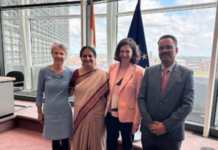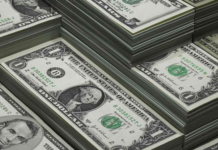New Delhi– The developed north of the world is witnessing the phenomenon of right-wing politicians “manipulating the reality” of globalisation not having delivered its benefits in an equitable manner, which poses the biggest threat to the multilateral trade system, UNCTAD Secretary General Mukhisa Kituyi said on Thursday.
Delivering a lecture here at industry chamber Ficci, the head of the UN body on trade and development pointed to the recent anti-globalisation trends such as the election of US President Donald Trump on a protectionist platform, Britain voting to exit the European Union and the rise of far-right politicians in Europe like Jean-Marie Le Pen of France.
“There were two processes that unfolded around the middle of last decade… the global crash of 2007-08 that distorted trade, while the recovery was very slow,” Kituyi said.
“At the same time, the left politics in Europe and America, which had emphasised cushioning the working class against the external vulnerabilities, abandoned this position leading to a steady erosion of the welfare state,” he said.
This erosion of the welfare state in the west made fertile ground for right wing politicians to promise to cushion those classes adversely affected by globalisation.
“International trade has been very easy to attack because it is easy to simplistically say we’re trading with other countries who are getting richer.. so let us stop this trade,” Kituyi said.
“Mercantilist self-interest has led to the search for bilateral trade agreements in a zero sum game,” he said, referring to Trump’s decision to withdraw from the Trans Pacific Partnership (TPP) regional trade agreement.
“Erecting boundaries and xenophobia is gaining currency in international relations,” he added.
Declaring that trade has “lifted one billion people out of poverty in India and China, the UNCTAD chief noted that Asia had become the biggest source of foreign direct investment for developing countries.
“There are problems in globalisation, but we can solve them without taking away the dynamics of globalisation,” Kituyi said, pointing out that in an ironic twist of history the formerly colonised countries are now the biggest champions of globalisation. (IANS)






